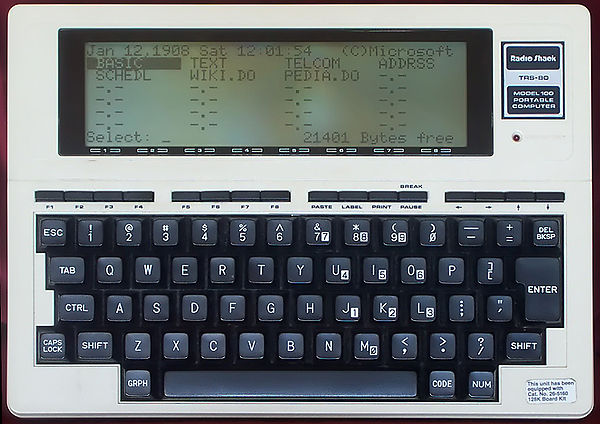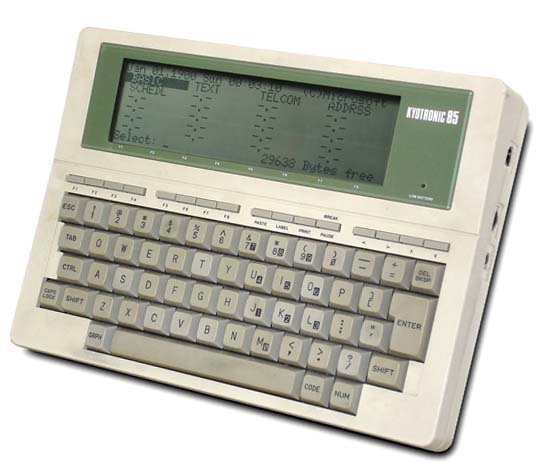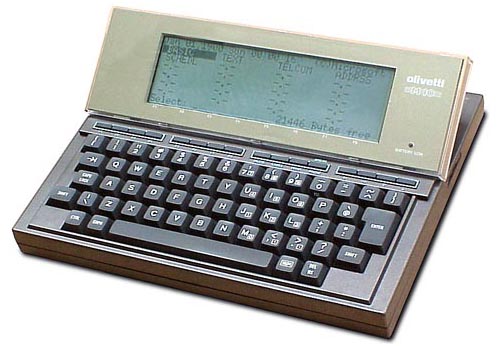Back in the early-to-mid ’80s, personal computing was finding it’s way. Desktop computers were becoming more visible in smaller businesses, but the work of computing still had to be done at the workplace. Portable computers were really just shrunken down desktops — they were called luggables at the time. Then came the revolution, as they say.
My first glimpse of the new wave of portable computers was not the Radio Shack (Tandy) TRS-80 Model 100, but rather the NEC PC-8201a — a sibling to the Model 100 (and the Olivetti M‑10). All were made by Kyocera of Japan and based on the Kyocera Kyotronics KC-85. But the 8201a was the first portable I used that was actually a reasonably competent computer for it’s time.
Costing about $1,000 ($2,600 in 2021) USD for a 24K model (yes, K as in kilobyte), it was a solid mobile computing platform with simple text editing, built-in telecommunications, and the BASIC programming language; supposedly the last iteration of BASIC that Bill Gates worked on before he went on to do other things.
Add a cassette recorder to your ensemble, and you could save your documents to tape, or load in other financial analysis and calculation programs. Plug it into a modem and you could dial in to CompuServe or GEnie, or a BBS (Bulletin Board System) and be charged by the minute for your online social media (we didn’t call it that back then) or gaming activity.
Fast Forward — about 40 years
Perhaps I’m getting to that age where the past begins to develop a rich, warm glow. I discovered that you could still find these portable computing pioneers available for a modest sum on Ebay. And with my recent interest in IoT (Internet of Things) devices, and microcontrollers (Arduino, Raspberry Pi), it seemed like this could be an interesting way to pass some Pandemic time.
I found one for a reasonable price and a few weeks later was the happy owner of the little unit in the image at the top of this story.
They’re really simple (by today’s standards) little devices. After unwrapping it and waiting for it to warm up — it was delivered on a ‑15c day so I thought I’d give the electronics time to clear any condensation — I flipped the power switch. And nothing happened.
To be expected actually. The Ebay seller had used an external power supply to test it, so I had to cobble one together myself to actually get it running. 5xAA alkaline batteries and a salvaged battery holder from one of my Arduino projects got me the power I needed to turn it on. Instant gratification! It worked, no smoke leaked out.
Testing and next steps
I put it through a quick test, loaded basic, ran a ‘Hello World’ program, made it beep, typed on all the keys, and gave it a good visual inspection.
Since the unit didn’t power up without an external power source, I knew I’d be taking apart the removable, rechargeable NiCad battery pack. So I did that next.
As expected, the pack was shot. Corrosion had crept across the circuit board and the battery pack didn’t look good. I was going to have to rebuild that pack and circuit board if I wanted to use rechargeable in it. Excellent, an excuse to research!
After determining the state of the battery pack, I built a list of things to do, and started checking them off. I’ll leave the list below, but the details, well those are words for another blog post.






Leave a Reply